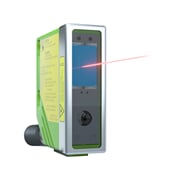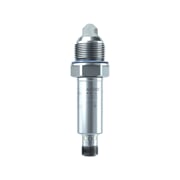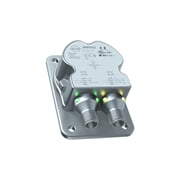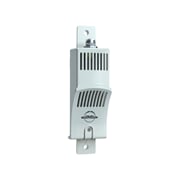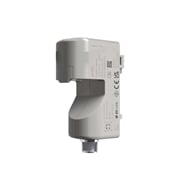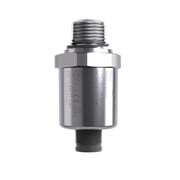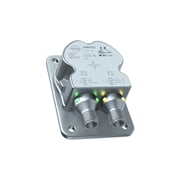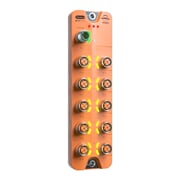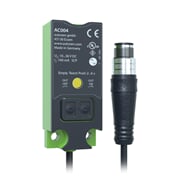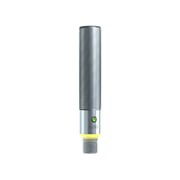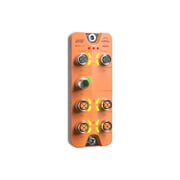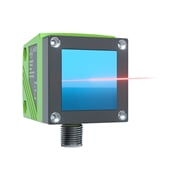IO-Link
IO-Link is a globally standardised digital communication technology for sensors. This technology enables continuous communication down to the lowest field level and the central management of sensor parameters, thus facilitating device replacement and greatly reducing commissioning time. Read more here
 Cloud compatible
Cloud compatible 100+ in stock!
Online -5,5 %
198.89 €
187.95 €
What is IO-Link?
IO-Link is the first, worldwide standardized and digital communication technology (IEC 61131-9) designed for inter-sensor communication. The high-performance, point-to-point communication is based on the tried-and-tested 3-wire sensor connection (M8 and M12) without any extra requirements regarding the cable material. An IO-Link Master communicates with the IO-Link sensors. The IO-Link Master is installed either in a switching cabinet or in the field. The IO-Link sensor is coupled with the Master via an unshielded sensor cable of 20 metres length. This provides for digital signal transmission (binary switching, analogue input / output, parameters) to the PLC.
IO-Link provides for uninterrupted communication from the machine level to the control level to the lowest in-field level. In future, ERP access all the way to the sensor is no longer a problem. The sensor parameters are administered centrally, reducing downtimes and allowing for sensor replacement within minutes.
A single interface for the entire communication system: Binary switching signals, analogue signals (4 ... 20 mA, 0 ... 10 V), parameter configuration (RS232) – IO-Link manages all that via a 3-wire sensor connection. Transmission is digital, so there is no need to shield the cable and transmission errors are practically impossible. Pins 1 and 3 are for applying voltages, Pin 4 transmits all other signals and allows for easy sensor configuration via the PLC software during operation.
A single interface for the entire communication system: Binary switching signals, analogue signals (4 ... 20 mA, 0 ... 10 V), parameter configuration (RS232) – IO-Link manages all that via a 3-wire sensor connection. Transmission is digital, so there is no need to shield the cable and transmission errors are practically impossible. Pins 1 and 3 are for applying voltages, Pin 4 transmits all other signals and allows for easy sensor configuration via the PLC software during operation.

Our IO-Link-related products
autosen provides everything you may need for automation using IO-Link: The required IO-Link software, the IO-Link Master, suitable Ethernet cables and of course IO-Link compatible sensors of many different kinds.
The IO-Link software allows you to parametrize the sensors from the comfort of your own workplace. The IO-Link Master manages the communication between the software and the sensor. The Ethernet cables ensure a secure connection for signal transmission – be that from the Master to the software or from one Master to another. You can find all the autosen sensors that can be digitally connected using IO-Link here.
The IO-Link software allows you to parametrize the sensors from the comfort of your own workplace. The IO-Link Master manages the communication between the software and the sensor. The Ethernet cables ensure a secure connection for signal transmission – be that from the Master to the software or from one Master to another. You can find all the autosen sensors that can be digitally connected using IO-Link here.
The advantages of IO-Link at a glance:
- High-performance, point-to-point communication with sensors
- No extra requirements regarding the cable material
- Uninterrupted communication down to the lowest in-field level
- Self-parametrizing feature means sensor replacement only takes minutes
- Reduced downtimes and wiring thanks to unshielded cables
- Manipulation-safe and future-oriented




